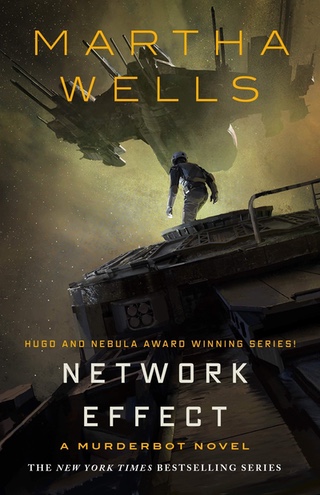Finally the novel length treatment I've been asking for. Murderbot, calling itself just "SecUnit" in the company of friendly non-corporate Humans, does a perfectly adequate job protecting them from their poor decision-making, and becomes somewhat… not exactly social, but what passes for it.
“She grimaced. “Right, sorry.” Then she looked away and rubbed her eyes.
And I’d made her cry. Good job, Murderbot.
I knew I’d been an asshole and I owed Amena an apology. I’d attribute it
to the performance reliability drop, and the emotional breakdown which I
am provisionally conceding as ongoing rather than an isolated event that
I am totally over now, and being involuntarily shutdown and restarted,
but I can also be kind of an asshole. (“Kind of” = in the 70 percent–80
percent range.) I didn’t know what to say but I didn’t have time to do a
search for relevant apology examples. (And it’s not like I ever find any
relevant examples that I actually want to use.) I said, “I’m sorry for …
being an asshole.”
—Martha Wells, "Network Effect"
Then a rather familiar transport/gunboat shoots them up, and abducts them to another solar system, with some odd, hostile inhabitants, or "Targets" as Murderbot calls them.
Finally we get a little explanation of the wormhole transit system, much better detail on drone and network systems, and Corporation Rim colony setup. There's even a planetary surface described in… not great detail, but any detail? So that's different. Since reading this book I'm going back to reread the novellas with more background information.
There's as much internal chatter of Murderbot as ever, which is the thing that draws us weirdos to this, but also a lot of feed and voice chatter with others forcing some character development the novellas can't achieve.
It's organized almost along episodic A- B- plot beats, Murderbot kills everyone, there's a social/investigation sequence, backstory piece, repeat (four times? More or less).
The Targets and what's driving them takes a long time to be revealed, and how some of their software attacks are possible isn't clear until very late in the book.
And it's left set up for more stories, which is all Murderbot's after, too.
★★★★★ — inhaled it in a couple sittings.
Also, there was a prequel short story in Wired a couple years ago, which I just learned of:
